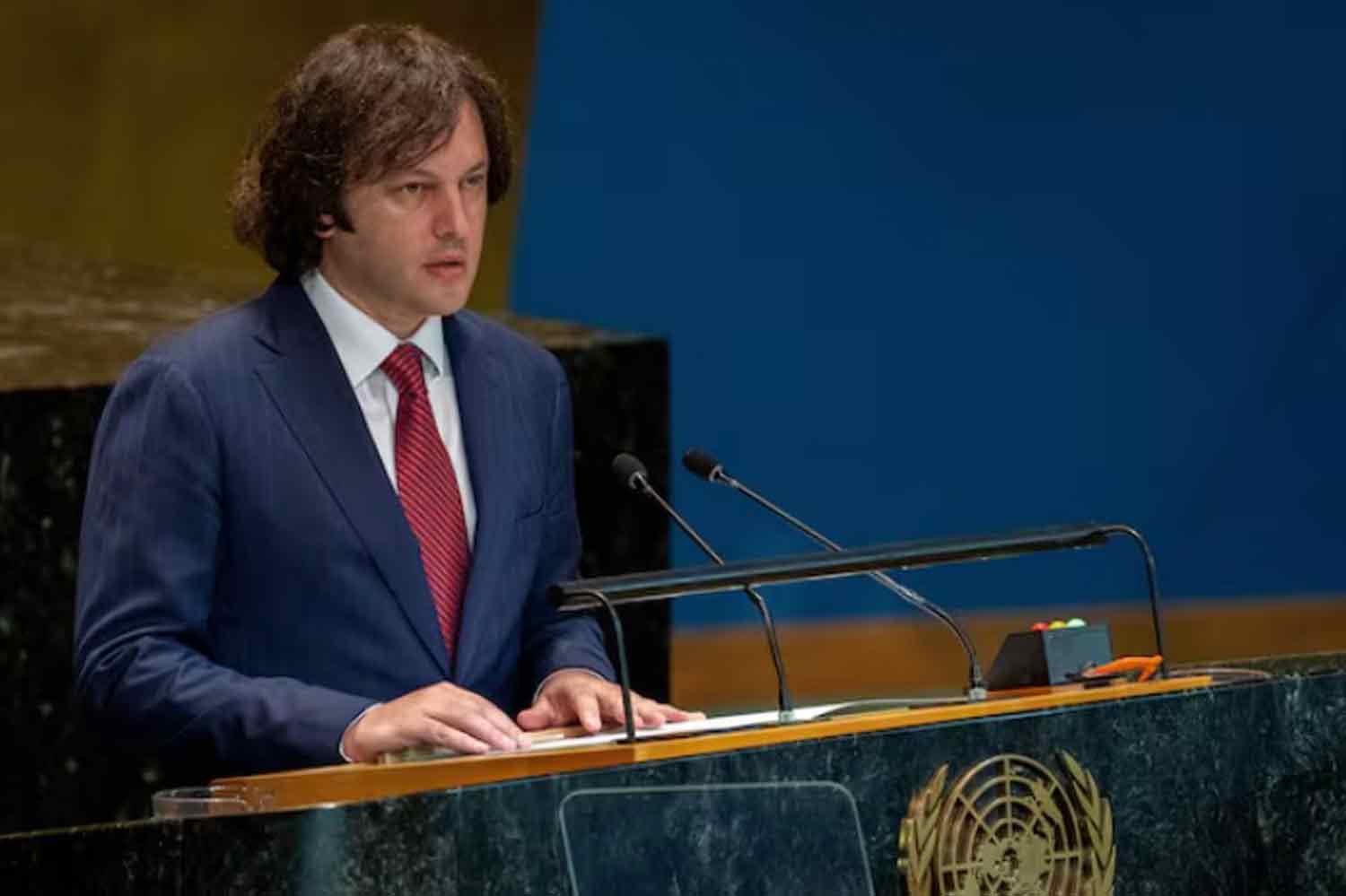Georgia announced on Thursday that it would halt discussions regarding European Union membership until 2028 and would also decline budgetary grants from Brussels, citing what it described as a “cascade of insults” from the bloc.
In its statement, the Georgian Dream governing coalition accused the EU of using the potential for accession talks as a means to “blackmail” Georgia and to “instigate a revolution” within the nation.
Consequently, the party declared: “We have resolved not to place the matter of initiating negotiations with the European Union on the agenda until the conclusion of 2028. Additionally, we will reject any budgetary assistance from the European Union until that time.”
The South Caucasus nation, home to 3.7 million people, has enshrined its goal of EU membership in its constitution, yet relations with Brussels have significantly worsened in recent months. The EU has already indicated that Georgia’s application is currently on hold.
There was no immediate response from the EU regarding the statement made by Georgian Dream.
Surveys indicate that approximately 80% of Georgians favor EU membership, and the EU flag is displayed alongside the national flag at nearly all government buildings throughout the country.
While Georgian Dream professes a desire to join the EU, it has frequently found itself in diplomatic disputes with Brussels in recent years, even as it has strengthened its ties with neighboring Russia.
On Thursday, Georgian Prime Minister Irakli Kobakhidze expressed to reporters that EU membership could negatively impact Georgia’s economy, as it would necessitate the cancellation of visa-free agreements and trade arrangements with other nations.
Critics, both domestic and international, argue that the Georgian Dream party, perceived to be heavily influenced by its billionaire founder and former prime minister Bidzina Ivanishvili, is leading Georgia back towards Moscow, from which it achieved independence in 1991.
In December 2023, the EU granted Georgia candidate status; however, it has indicated that several laws enacted by Georgian Dream since then, including restrictions on “foreign agents” and limitations on LGBT rights, are authoritarian in nature, inspired by Russian policies, and present significant barriers to EU accession.
Western nations have also raised concerns regarding the October elections, where official results indicated that the Georgian Dream bloc secured nearly 54% of the vote, citing numerous violations. On Thursday, the European Parliament adopted a resolution calling for the annulment and re-election of these elections, along with the imposition of sanctions on prominent figures within Georgian Dream.
On Wednesday, Georgian Dream announced the selection of Mikheil Kavelashvili, a former deputy known for his anti-Western rhetoric, as its candidate for the largely ceremonial presidency of Georgia. Kavelashvili is expected to succeed the pro-EU incumbent, Salome Zourabichvili, who has consistently accused Georgian Dream of undermining the country’s aspirations for EU integration.
Discover more from Defence Talks | Defense News Hub, Military Updates, Security Insights
Subscribe to get the latest posts sent to your email.





